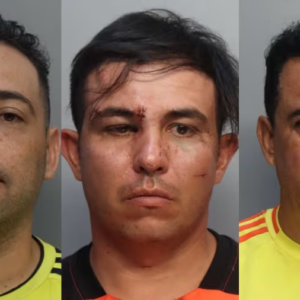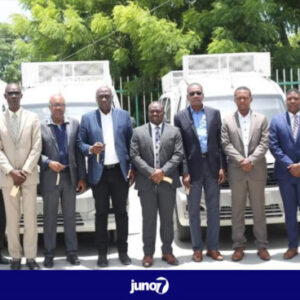The United States, the United Kingdom and France are at odds over compensation for victims at a chain of for-profit schools financed by the International Finance Corporation (IFC), the financial arm of the World Bank.
World Bank chief Ajay Banga apologized earlier this month for the organization’s handling of widespread cases of child sexual abuse at a chain of Kenyan for-profit schools funded by the International Finance Corporation (IFC), the investment arm of the bank.
IFC invested $13.5 million in Bridge International Academies starting in 2013 to help it develop private schools in Kenya. Multiple complaints of sexual abuse emerged in 2020 following an investigation by the IFC’s internal oversight body, the Compliance Ombudsman Advisor. The Ombudsman’s damning final report, submitted last October and published on March 14, found the bank had failed to address and mitigate abuse by Bridge staff.
In an email to World Bank staff on March 13, Banga, whose tenure began after the period of reported abuses, acknowledged that mistakes had been made.
“I am sorry for the trauma these children suffered, committed to supporting survivors and ensuring we do better in the future,” Banga wrote.
The Ombudsman’s report detailed sexual abuse suffered by at least 23 children at Bridge-operated schools in Kenya and suggested the IFC turned a blind eye when the complaints became known. He said the institution had failed to “regularly monitor or substantively address” sexual abuse despite several notifications between 2013 and 2017 of incidents in Bridge schools. The IFC also failed to address evidence that Bridge relied on unregistered teachers, the report added.
In March 2022, the IFC quietly withdrew its direct funding from Bridge, although it retained an investment in a backer that supports the company.
Until recently, Banga appeared to reject suggestions that the IFC had taken steps to cover up abuses. “I just disagree that there was a legal effort to cover it up,” Banga said at an event sponsored by the Center for World Development. “If this is proven, I will take all necessary measures. »
Banga has now proposed the appointment of an independent investigator to ensure the previous investigation was not influenced. “This is a difficult moment for our institution, but it must be a moment of introspection,” he added.
But critics say it doesn’t go far enough. “If there are no consequences for staff for such serious wrongdoing at the bank, you can be sure it will happen again,” said David Pred, executive director and co-founder of Inclusive Development International , a human rights group.
In recent weeks, a dispute has erupted between the nations that make up the IFC board over how the bank handles wrongdoing by companies such as Bridge. The Ombudsman recommended that victims of abuse receive financial compensation. Yet the “action plan” approved by the IFC board proposed payment for counseling and sexual health services.
“The official management action plan does not actually provide for any specific redress for Bridge survivors. The IFC instead plans to offer funding to child abuse service providers across Kenya,” Pred told Foreign Policy.
US lawmakers have urged the bank to adequately compensate victims, but the UK and France are said to be against monetary compensation because it would be costly and set a precedent.
“I am concerned that failure to provide direct and meaningful compensation will not only harm survivors and their families, but also harm the reputation of IFC, which has a critical mission around the world, and that of of the United States as its largest shareholder,” U.S. Rep. Maxine Waters, the ranking Democrat on the House Financial Services Committee, wrote in a letter to Treasury Secretary Janet Yellen.
A U.S. Treasury statement released a day after the action plan was signed said department officials “believe the IFC should keep all remedial options on the table while consultations continue.”
Kenya Abuse Scandal Rocks World Bank, IFC (foreignpolicy.com)








